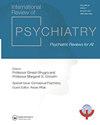医学学习者的品格和美德发展:艺术的另一个角色?
IF 3.7
4区 医学
Q1 PSYCHIATRY
引用次数: 0
摘要
医学教育的目的是教会学生如何像未来的医生那样思考和行动。要成功地做到这一点,不仅需要支持学习者获得临床技能和知识,还需要关注他们的品格教育和美德发展。艺术和人文学科被广泛认为是完整医学教育的基本组成部分。虽然不经常被吹捧为一种有用的教学工具来教授品格和美德,但我们认为将艺术活动融入医学教育可以促进美德的发展。在本文中,我们使用伯明翰大学朱比利品格与美德中心的美德框架来回顾现有的基于艺术的项目的经验研究,这些项目涉及智力、道德、公民和表演美德等美德领域。学习者可能会从进一步的探索中受益-概念和经验-艺术如何在医学教育中支撑性格发展。关键词:朱比利品德与美德研究中心;智力美德;公民美德;Chisolm是Paul McHugh人类繁荣项目的主任,她的工作得到了该项目的支持。披露声明作者未报告潜在的利益冲突。本文章由计算机程序翻译,如有差异,请以英文原文为准。
Character and virtue development in medical learners: another role for the arts?
AbstractMedical education serves to teach students how to think and act as future physicians. Doing so successfully requires supporting learners’ acquisition of clinical skills and knowledge, but also attending to their character education and virtue development. The arts and humanities are widely embraced as a fundamental component of a complete medical education. While not frequently touted as a useful pedagogical tool for teaching character and virtue, we argue the integration of arts-based activities into medical education can promote virtue development. In this article, we use the virtues framework from the Jubilee Centre for Character and Virtues at the University of Birmingham to review existing empirical studies of arts-based programs for each of these virtue domains of intellectual, moral, civic, and performance virtues. Learners may benefit from further exploration—both conceptual and empirical—of how the arts can scaffold character development in medical education.Keywords: Jubilee Center for Character and Virtuesintellectual virtuescivic virtuesperformance virtuesmoral virtueshumanities AcknowledgementsDr. Chisolm is the Director of the Paul McHugh Program for Human Flourishing, through which her work is supported.Disclosure statementNo potential conflict of interest was reported by the author(s).
求助全文
通过发布文献求助,成功后即可免费获取论文全文。
去求助
来源期刊

International Review of Psychiatry
PSYCHIATRY-
CiteScore
5.10
自引率
0.00%
发文量
85
期刊介绍:
The International Review of Psychiatry is the premier review journal in the field with a truly international authorship and readership. Each bimonthly issue is dedicated to a specific theme relevant to psychiatry, edited by recognized experts on the topic, who are selected by the Editors and the Editorial Board. Each issue provides in-depth, scholarly reviews of the topic in focus. The Journal reaches a broad international readership including clinicians, academics, educators, and researchers who wish to remain up-to-date with recent and rapid developments in various fields of psychiatry. It aims to be of value to trainees by choosing topics of relevance to career development, which are also suitable for clinicians for continuing professional development.
 求助内容:
求助内容: 应助结果提醒方式:
应助结果提醒方式:


